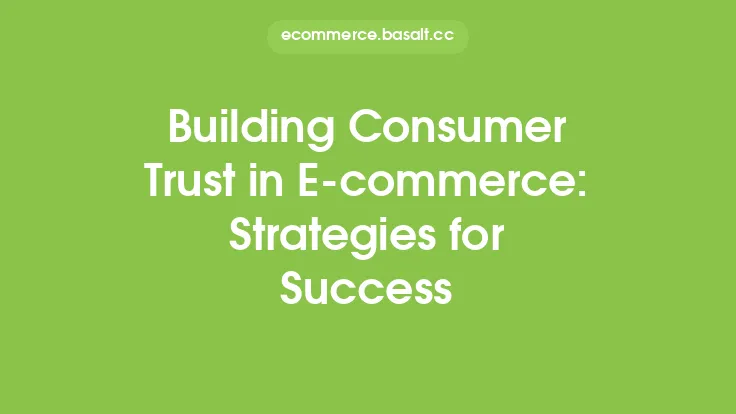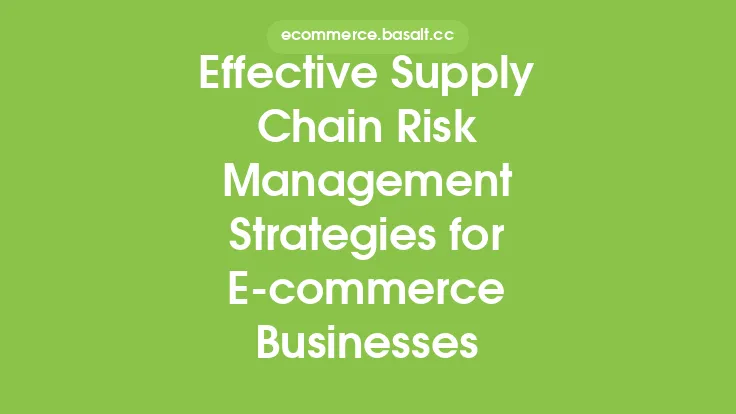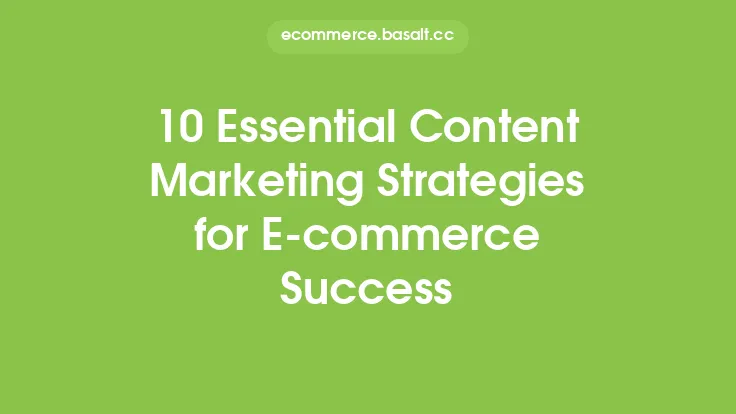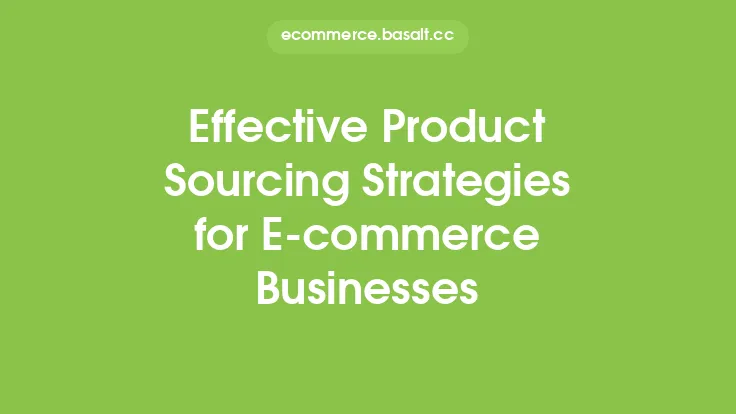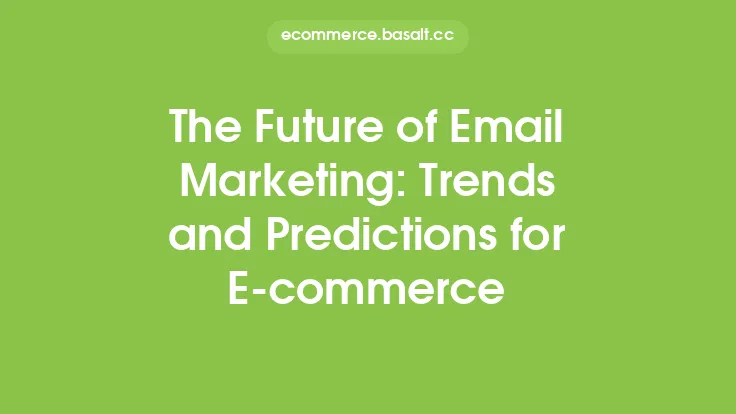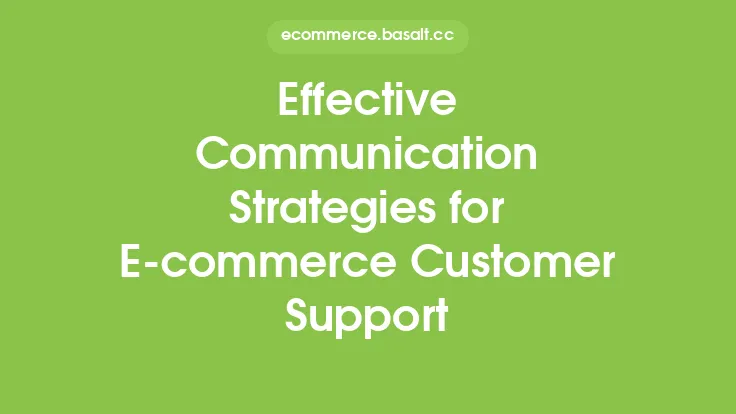Building a robust email list is a crucial aspect of e-commerce marketing, as it allows businesses to connect with their target audience, promote products, and drive sales. A well-crafted email list building strategy can help e-commerce businesses establish a loyal customer base, increase brand awareness, and ultimately, boost revenue. In this article, we will delve into the world of email list building, exploring the most effective strategies for e-commerce businesses to grow their email lists and maximize their marketing potential.
Understanding the Importance of Email List Building
Email list building is a vital component of e-commerce marketing, as it enables businesses to reach their target audience directly and promote their products or services. A strong email list can help e-commerce businesses to increase brand awareness, drive website traffic, and generate sales. Moreover, email marketing has been shown to have a higher return on investment (ROI) compared to other marketing channels, making it an essential tool for e-commerce businesses. By building a robust email list, e-commerce businesses can establish a loyal customer base, improve customer engagement, and ultimately, drive business growth.
Identifying Target Audience
To build an effective email list, e-commerce businesses need to identify their target audience. This involves understanding the demographics, interests, and behaviors of potential customers. Businesses can use various tools and techniques, such as customer surveys, social media analytics, and website tracking, to gather data about their target audience. By understanding their target audience, e-commerce businesses can create targeted email marketing campaigns that resonate with their audience and increase the likelihood of conversion.
Creating Incentives for Email Sign-ups
One of the most effective ways to build an email list is to create incentives for email sign-ups. This can include offering discounts, free shipping, or exclusive access to new products or services. E-commerce businesses can also use gamification techniques, such as contests or quizzes, to encourage email sign-ups. Additionally, businesses can use social proof, such as customer testimonials or reviews, to build trust and credibility with potential customers. By offering valuable incentives, e-commerce businesses can encourage visitors to sign up for their email list and increase the chances of conversion.
Optimizing Website for Email Sign-ups
E-commerce businesses can optimize their website to encourage email sign-ups by adding prominent email sign-up forms, using clear and concise language, and making it easy for visitors to sign up. Businesses can also use pop-ups, slide-ins, or other interactive elements to grab visitors' attention and encourage email sign-ups. Moreover, e-commerce businesses can use website analytics tools to track visitor behavior and identify areas of the website where email sign-up forms can be placed for maximum visibility.
Leveraging Social Media for Email List Building
Social media platforms can be a powerful tool for email list building. E-commerce businesses can use social media to promote their email list, offer exclusive discounts or promotions, and encourage followers to sign up for their email list. Businesses can also use social media advertising, such as Facebook ads or Instagram ads, to reach a wider audience and drive email sign-ups. Additionally, e-commerce businesses can use social media analytics tools to track the effectiveness of their social media campaigns and adjust their strategy accordingly.
Using Content Marketing for Email List Building
Content marketing can be an effective way to build an email list. E-commerce businesses can create high-quality, relevant, and valuable content, such as blog posts, videos, or podcasts, to attract and engage with their target audience. By offering exclusive content or resources, such as e-books or webinars, businesses can encourage visitors to sign up for their email list. Moreover, e-commerce businesses can use content marketing to establish their brand as a thought leader in their industry, build trust and credibility with their audience, and ultimately, drive email sign-ups.
Building Partnerships for Email List Building
E-commerce businesses can build partnerships with other businesses or organizations to build their email list. This can include partnering with complementary businesses to offer joint promotions or exclusive discounts, or partnering with influencers or industry experts to promote products or services. Businesses can also use affiliate marketing programs to encourage partners to promote their email list and drive email sign-ups. By building partnerships, e-commerce businesses can expand their reach, build their brand, and ultimately, drive email list growth.
Measuring and Optimizing Email List Building Efforts
To ensure the effectiveness of their email list building efforts, e-commerce businesses need to measure and optimize their strategy. This can include tracking key metrics, such as email open rates, click-through rates, and conversion rates, to understand the effectiveness of their email marketing campaigns. Businesses can also use A/B testing and experimentation to optimize their email sign-up forms, email content, and subject lines. By continuously measuring and optimizing their email list building efforts, e-commerce businesses can improve their email marketing ROI, increase their email list growth, and ultimately, drive business success.
Best Practices for Email List Building
To build a robust email list, e-commerce businesses need to follow best practices, such as using clear and concise language, making it easy for visitors to sign up, and offering valuable incentives. Businesses should also ensure that their email sign-up forms are prominent, easy to use, and optimized for mobile devices. Additionally, e-commerce businesses should use email marketing automation tools to personalize and optimize their email marketing campaigns, and ensure that their email list is compliant with anti-spam laws and regulations. By following best practices, e-commerce businesses can build a strong email list, improve their email marketing ROI, and drive business growth.
Conclusion
Building a robust email list is a crucial aspect of e-commerce marketing, as it allows businesses to connect with their target audience, promote products, and drive sales. By understanding the importance of email list building, identifying their target audience, creating incentives for email sign-ups, optimizing their website, leveraging social media, using content marketing, building partnerships, measuring and optimizing their efforts, and following best practices, e-commerce businesses can build a strong email list and maximize their marketing potential. With a well-crafted email list building strategy, e-commerce businesses can establish a loyal customer base, increase brand awareness, and ultimately, drive business success.
